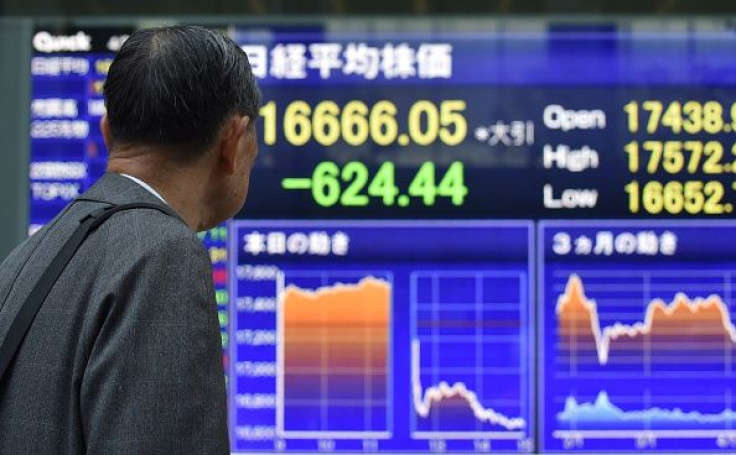Asia Shares Fall For Seventh Session

Asian shares slipped for a seventh straight session Thursday as a mixed batch of U.S. economic data did nothing to assuage concerns about global growth and deflation, keeping sovereign bonds well supported.
Activity was sparse with Japan still on holiday and many investors taking cover ahead of the U.S. jobs report on Friday.
MSCI's broadest index of Asia-Pacific shares outside Japan eased 0.1 percent, to be down 5 percent over the past two weeks.
"I think what has taken place more than anything else over the past 48 hours is the questioning of the reflation trade that was starting to be latched on by many, especially when you consider the recent price action in the USD, commodities and equities," CitiFX analysts said in a note.
"If that reflation trade notion is in fact dying, the unwind of the past few weeks of price action would potentially be the more significant reaction in markets."
One shift already under way was a revival in demand for sovereign bonds, a favored hedge against deflation.
Yields on 10-year U.S. Treasury notes were at their lowest in two weeks at 1.777 percent, a notable rally from last week's top of 1.94 percent.
The equivalent yield in Australia has plunged no less than 31 basis points in the past week as record-low core inflation forced the central bank to cut its cash rate to an all-time low.
The rush to bonds has left equities out in the cold. The Dow ended Wednesday down 0.56 percent, while the S&P 500 eased 0.59 percent and the Nasdaq 0.79 percent.
The pan-regional FTSEurofirst 300 index fell 1.2 percent to its lowest close in nearly four weeks.
A MIXED BAG
Wall Street slipped even as data showed the vast U.S. services sector expanded in April as new orders and employment accelerated, offering hope economic growth would rebound after a sluggish first quarter.
Yet other figures showed private employers hired the fewest workers in three years, sparking concerns the all-important payrolls report might also disappoint.
Friday's jobs figures are forecast to show a solid gain of 202,000 in April with unemployment steady at 5 percent.
A weak outcome could push back the timing of the Federal Reserve's next hike in rates and put fresh pressure on the dollar. The U.S. currency has steadied in the last couple of days having taken a beating against the yen and euro.
The dollar was holding at 107.14 yen early Thursday, above the recent 18-month trough of 105.55 but a long way from last week's peak of 111.88.
The euro changed hands at $1.1487, having been as high as $1.1614 this week from a low of $1.1213 in April. Against a basket of currencies the dollar was all but flat at 93.231.
In commodity markets, industrial metals such as copper and iron ore were nursing losses, though oil bounced in early Asian trade.
Traders said the gains could be linked to an uncontrolled wildfire near Canada's oil sands region that was reducing production.
Brent crude was quoted 73 cents higher at $45.31 a barrel, while U.S. crude added 75 cents to $44.53.
© Copyright Thomson Reuters 2024. All rights reserved.











